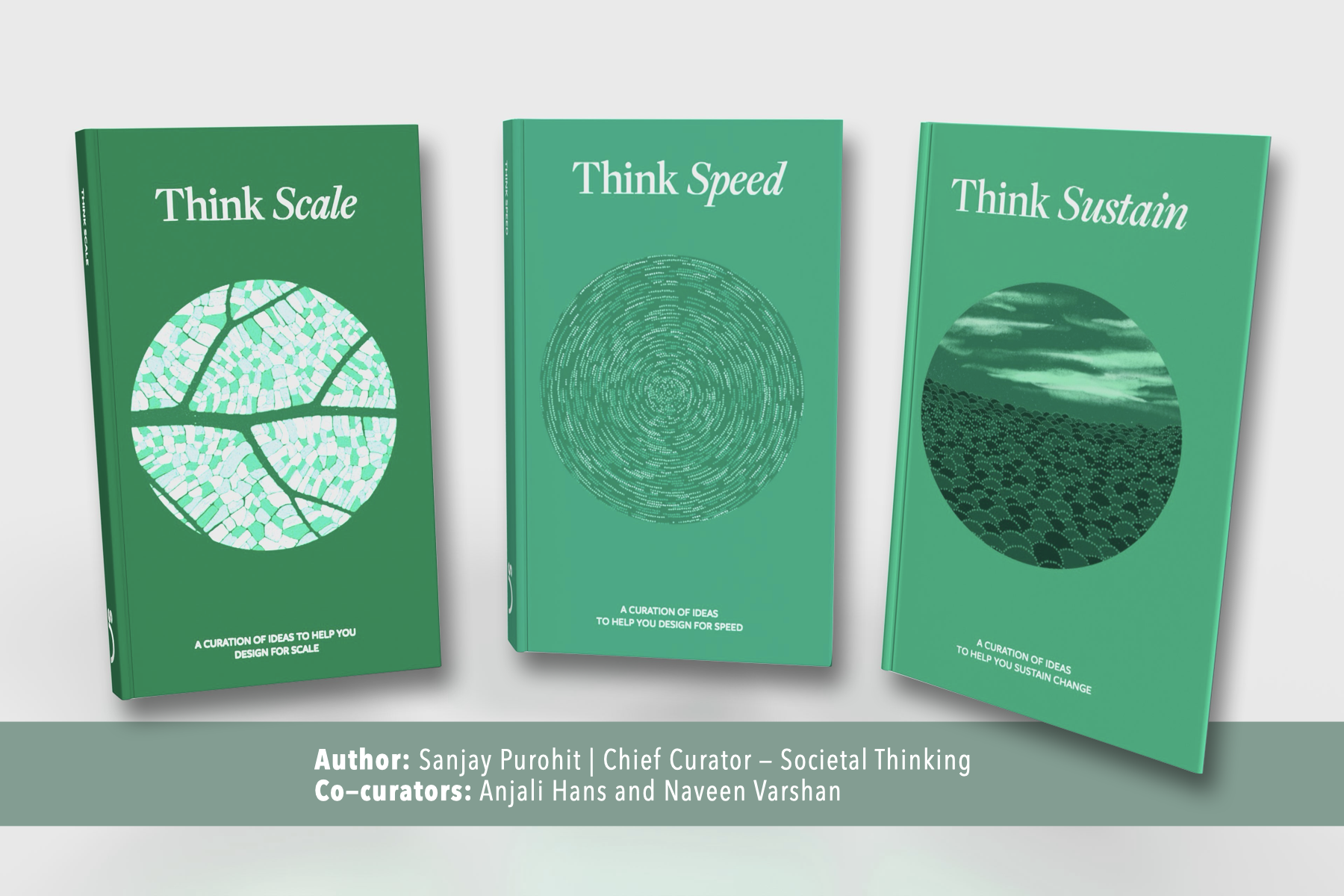For the last 7 years, at Societal Thinking we have been co-travelling with change leaders to reimagine and solve social problems at scale, with speed and sustainably. Last year, a serendipitous conversation with a representative from the African Leadership Academy sparked an idea that made us think more expansively about ‘who makes a change leader?’ We wondered: Could our core values, design principles and shifts be leveraged to build agency, nurture dignity and enable choice among young people? And, could this inspire a multiplier effect – where more and more young people are empowered and empower their communities? It struck us as an opportune time as well, since now more than ever, young people are standing up for what they believe in, be it climate action, gender equity, disability rights and more.
Our next step was figuring out how we could take Societal Thinking to young people in a way that would be timely, relevant and simple to understand.
The opportunity to explore this idea presented itself when Societal Thinking connected with Samhita Academy, a uniquely positioned school with a strong focus on leadership development, aligned with the CBSE curriculum requirements for social action projects. Ms. Asha Thomas, Chairperson, and Ms K S Jyothi, Principal of Samhita Academy, very generously offered us a space to experiment. So, I decided to make our core values and mindset shifts relatable and actionable for the grade 9 students of Samhita Academy.

In January, with the help of Ms Gargi Guha, Social action Coordinator from Samhita Academy, Ashcharya, our Lead – Leader’s lab and Varsha, our Chief – Knowledge and Design and I went to Samhita Academy, curious and open-minded about what our experiment would yield. The objective was not to make assumptions but to genuinely explore how these young minds would respond to the idea of agency, dignity, choice and mindset shifts that help think differently about ourselves and how we can make an impact.
We decided to do this experiment in two sessions. One session would focus on Societal Thinking core values with Vinay Sanjivi, Program Manager at ShikshaLokam. The second session would explore mindset shifts with Deepika Mogilishetty, Chief of Policy and Partnerships at Ekstep Foundation.
During the sessions, these conversations unfolded seamlessly, with students resonating deeply with the concept of agency. As Ashcharya recalls, in one of the sessions, students took the values of Societal Thinking “like fish to water”. They connected these concepts to their own experiences and were easily able to grasp the intricate relationship between personal values and larger societal dynamics and problem solving. When Vinay from Shikshalokam took the students through real-life, relatable examples from their organisation, the students were able to identify the values at play and discuss them at length.
One student said he was able to showcase agency when he made a decision to take care of his health by working out and playing sports to be fit. Another student mentioned how checking up on friends when they are unwell or taking care of a stray cat are reflections of empathy and dignity for all life forms. Some students talked about having a student council in the school which can represent the student’s grievances to the school management and, at the same time, build leadership. One which shone out to me was a student saying, “I want to interact with and treat people the way I want others to interact with me,” about how he relates to agency and dignity. I was surprised (and humbled!) at how profoundly these young people thought about such nuanced concepts.

Deepika lead the second session focused on mindset shifts, with a series of activities. We gave students two case studies, one that addressed bullying in school and the other on waste management. There were a set of questions associated with each case study that students had to answer such as ‘who the actors involved in these contexts are’, ‘what their mindsets may be like’, and ‘what solutions we could propose to solve these problems’.
Students were able to understand that every problem or issue needs to be evaluated in its context. Some reflections from students on how they relate to mindset shifts included: “Perspective to look at different things” and “When you need change to happen, be part of it”. Students were also taken through different life events and asked to respond with what would be their first response and mindset and how it may shift when an event impacts them individually. One example was talking about how we view an exam as a success or failure. In response, students expressed sentiments such as “It is not a definition of who I am” and “We don’t lose when we fail but only when we give up trying”.
It was heartening to see how effortlessly the concept stuck with the students. The diversity among the students only seemed to strengthen the universality of core values – showcasing how agency, dignity and choice could be guiding forces, irrespective of one’s background.
This experiment was not just a one-time endeavour for Societal Thinking but a glimpse into the potential to drive social change in young people. The eagerness and receptivity of the students at Samhita Academy highlighted the importance of creating spaces for young people to have conversations about the world, and their role in making our dream of a better future for all come true.
Learn more about Societal Thinking core values and mindset shifts here.
 Back
Back


